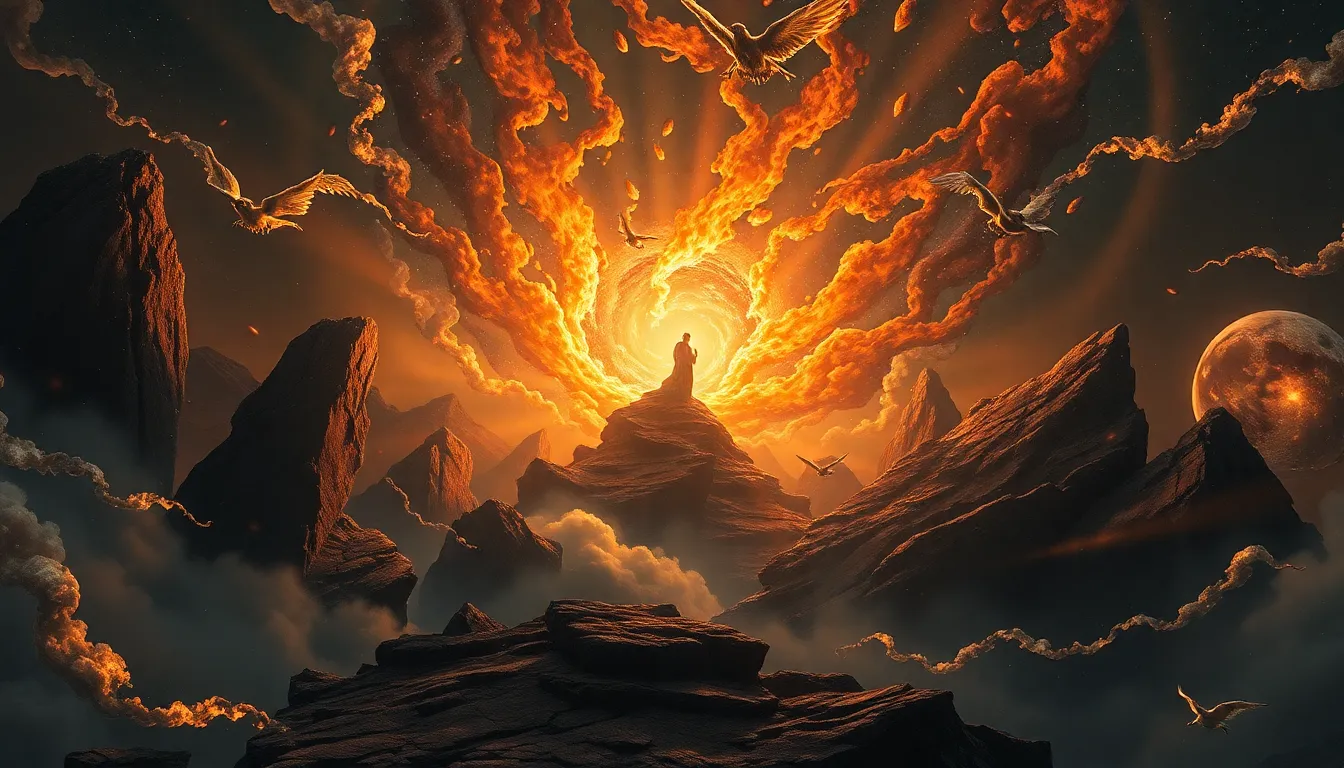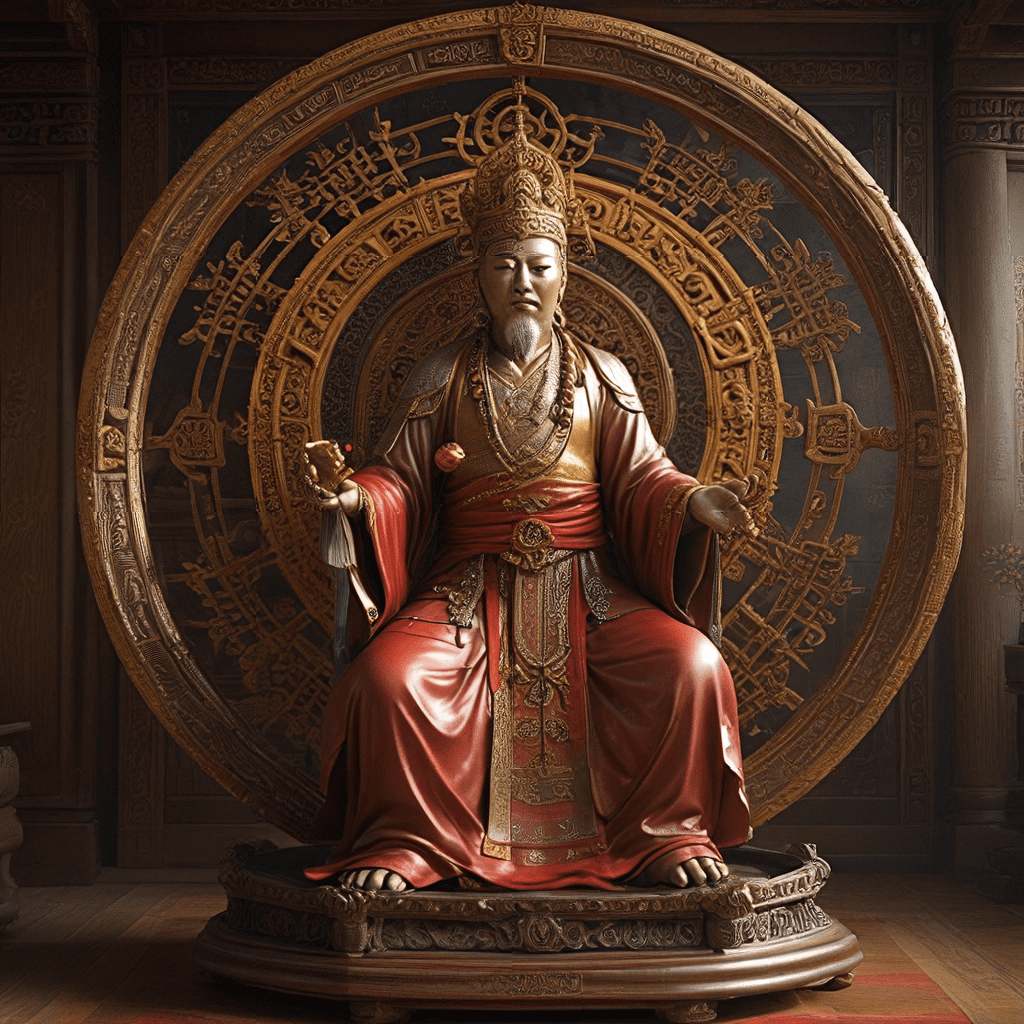The Enigma of Creation: Myths That Challenge Our Understanding
Introduction: The Quest for Understanding Creation
Throughout history, diverse cultures have sought to explain the origins of the universe and humanity through creation myths. These stories serve as foundational narratives that offer insights into the beliefs, values, and existential questions of different societies. The significance of these myths extends beyond mere storytelling; they shape human thought and culture, influencing our understanding of existence.
This article aims to explore various creation myths from around the world, examining their implications for our understanding of existence and the nature of reality itself. By delving into these ancient narratives, we can gain a deeper appreciation for the diverse ways humanity has grappled with questions of creation, existence, and purpose.
The Nature of Myths: Definitions and Functions
Myths are traditional stories that convey the beliefs and values of a culture. They often provide explanations for natural phenomena, human behavior, and existential questions that perplex humanity. Myths serve several functions, including:
- Explanatory: Myths often explain the origins of the world, humanity, and natural elements.
- Cultural: They reflect the values, morals, and social structures of the societies that tell them.
- Psychological: Myths help individuals understand their place in the world, addressing fears and aspirations.
In this way, creation myths play a crucial role in shaping both individual and collective identities, offering frameworks through which people can interpret their experiences and the world around them.
Creation Myths in Ancient Civilizations
Ancient civilizations produced rich and varied creation myths that reflect their unique cultures and belief systems. Two notable examples come from Mesopotamia and Egypt.
The Enuma Elish: A Babylonian Perspective on Creation
The Enuma Elish is a Babylonian creation myth that depicts the emergence of the cosmos from a primordial chaos. It describes the struggle between the god Marduk and the goddess Tiamat, representing chaos. Through his victory, Marduk creates the world from Tiamat’s body, establishing order from chaos. This myth highlights themes of power, creation, and the establishment of divine authority.
Egyptian Mythology: Atum and the Emergence of the Cosmos
In Egyptian mythology, Atum is the creator god who emerges from the primordial waters of chaos, known as Nun. Atum creates himself and then brings forth other gods, leading to the formation of the universe. This creation story emphasizes the importance of order and balance in the cosmos, reflecting the Egyptians’ deep reverence for harmony in nature.
Eastern Perspectives: Hindu and Chinese Creation Myths
Creation myths in Eastern traditions present unique perspectives on the origins of the universe. Two significant examples are found in Hindu and Chinese cosmology.
The Rigveda and the Concept of Cosmic Sacrifice (Purusha)
The Rigveda, one of the oldest sacred texts in Hinduism, describes the cosmic sacrifice of Purusha, a primordial being. From Purusha’s body, the gods and the universe are created. This myth emphasizes the interconnectedness of all life and the idea that creation arises from sacrifice, highlighting the themes of unity and diversity in existence.
The Chinese Creation Myth of Pangu and the Balance of Yin and Yang
In Chinese mythology, Pangu is a giant who separates the heavens and the earth from a primordial chaos. After his death, his body transforms into various elements of the world, establishing the balance of yin and yang. This myth underscores the importance of duality and balance in Chinese philosophy and cosmology.
Indigenous Creation Myths: Wisdom of the Ancients
Indigenous cultures around the world possess rich creation stories that reflect their deep connection to nature and the environment. These myths often emphasize the role of the land, animals, and natural phenomena in the creation of the world.
For example, many Native American creation stories feature themes of emergence from the earth or the sky, with characters embodying elements of nature. These narratives challenge contemporary perspectives by highlighting the importance of stewardship and respect for the environment.
The Role of Chaos in Creation Myths
Chaos is a recurring motif in many creation myths, symbolizing the state of existence before order is established. In Greek mythology, the concept of chaos is central to Hesiod’s Theogony, where chaos represents the void from which the first beings emerge. This portrayal of chaos suggests that disorder is an inherent part of creation, raising questions about the nature of existence itself.
Creation Myths and Modern Science: A Clash or Complement?
The relationship between creation myths and modern scientific theories, such as the Big Bang Theory and evolution, is complex. Some see these narratives as conflicting with scientific explanations, while others argue they coexist in providing complementary understandings of our origins.
Philosophers and scientists have debated this intersection, suggesting that both myths and science seek to answer fundamental questions about existence. Myths provide cultural and spiritual insights, while science offers empirical evidence and technological advancement. The challenge lies in reconciling these differing perspectives to form a holistic understanding of creation.
The Philosophical Implications of Creation Myths
Creation myths profoundly influence philosophical inquiries about existence, purpose, and morality. Different stories shape our understanding of human nature and our responsibilities to one another and the world. For instance:
- Existential Questions: Myths provoke inquiries about why we exist and what our purpose is.
- Ethical Considerations: Creation stories often contain moral lessons that inform ethical behavior.
- Reflection of Aspirations: Myths can reflect societal hopes and fears regarding existence and the future.
Contemporary Reinterpretations of Creation Myths
In recent years, there has been a resurgence of interest in creation myths within modern literature and art. Contemporary thinkers and artists are reinterpreting these ancient narratives to address current issues such as environmental sustainability, identity, and social justice.
This revival highlights the enduring relevance of creation myths, as they continue to provide frameworks for understanding our place in the universe. By engaging with these stories, we can challenge modern perspectives and explore new possibilities for existence and coexistence.
Conclusion
The exploration of creation myths reveals the rich tapestry of human thought and culture. These narratives not only offer insights into the origins of the universe but also challenge our understanding of existence, purpose, and our relationship with the world around us. As we navigate the complexities of modern life, the wisdom embedded in these ancient stories remains a vital resource for reflection and inspiration.




